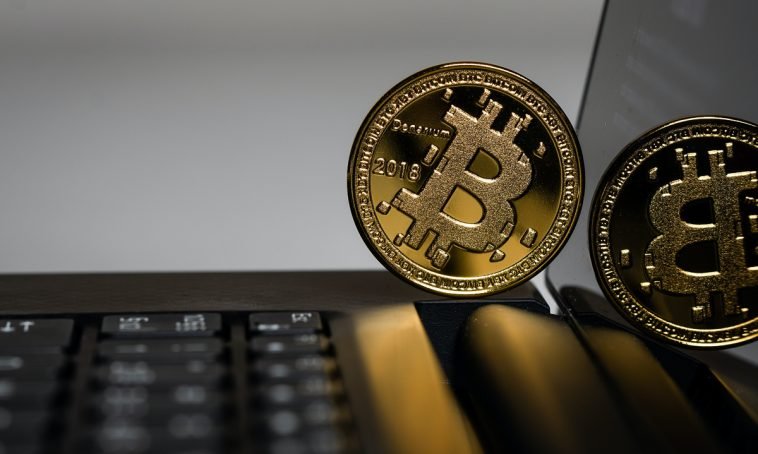Introduction.
If you’ve been around the crypto space for a while, you’ve probably heard the term “flipping crypto” tossed around. It sounds like some kind of magic trick—but it’s actually a pretty simple concept.
It just means buying a cryptocurrency at a lower price and selling it later at a higher one. That’s it. It’s like flipping sneakers, or trading cards, but with digital coins like Bitcoin, Ethereum, or Solana.
So, why should you care?
Because crypto flipping can be a solid way to make money—if you do it right. And I’m not talking about day trading for 12 hours straight with 10 screens blinking red and green.
I’m talking about learning how to flip in a smart, easy-to-understand way—even if you’re just starting.
This guide breaks everything down, step by step. It’s not about hype or overnight success. It’s about real tips that work. No complicated charts. No confusing crypto slang. Just straight talk.
Let’s get into it.
What Is Crypto Flipping, Really?
At its core, crypto flipping is just buying low and selling high. That’s it.
You find a coin or token that you believe will rise in value, you buy it, then wait for the price to go up. When it does, you sell it for a profit. Simple? Yes. Easy? Not always. But with the right tools and mindset, it gets much easier.
There are different types of flipping too:
Short-term flipping – Buy and sell within hours or days.
Mid-term flipping – Hold for a few weeks or months.
Long-term flipping – Buy early, wait, and sell when the price has multiplied.
How do I Flip Crypto Easily?
1. Pick the Right Exchange
First things first—you need a solid exchange to buy and sell your crypto. Here are a few I recommend:
Look for platforms that are beginner-friendly, have strong security, and charge low fees.
2. Choose the Right Coin
This is where most people get stuck.
You don’t need to chase every new meme coin. In fact, a lot of flipping success comes from sticking with solid projects that actually have long-term value. Think Ethereum, Solana, Polygon, Avalanche, etc.
But if you want more risk (and potentially more reward), you can look into smaller cap coins—just make sure you do your research.
Ask yourself:
Is the project active on social media?
Do they have a real use case?
Are people actually using it?
Does the team seem legit?
Websites like CoinMarketCap and CoinGecko are great for checking price history, market cap, and trading volume.
3. Time Your Entry
This is key. You make your profit when you buy, not when you sell.
So how do you know when to buy?
Look at the coin’s price chart over the last 7–30 days. If the price has dropped 20–30% and there’s no bad news around it, it might be a good time to jump in. Tools like TradingView or the charts on Binance can help.
Also, don’t FOMO (fear of missing out). If something has already pumped hard, it’s usually not a great time to buy.
4. Set a Profit Target
Before you buy, decide what profit you’re aiming for. Is it 10%? 25%? 50%?
Whatever it is, write it down.
Example: You buy $200 worth of a coin. You want a 25% return. That means when it hits $250, you sell.
Stick to your plan. Greed kills profit.
5. Know When to Sell
This is where most people mess up. They hold on too long, hoping for “just a little more.”
Don’t do that. If you’ve hit your profit target, take the money. You can always buy back in later if the price drops again.
Also, don’t be afraid to take partial profits. Sell half when you’re up 20%, then see what happens with the rest.
6. Track Everything
Use a simple spreadsheet or a tool like CoinTracker to keep track of your flips.
Log:
What you bought
When you bought it
How much you paid
When you sold
How much profit you made
It helps you learn and avoid repeating mistakes.
Quick Tips for Easier Flipping
Don’t flip with money you can’t afford to lose.
Avoid hype coins that are all over TikTok or X (formerly Twitter).
Look for coins that have strong communities and active development.
Keep emotions out of it. This is not gambling.
Stick to 2–3 coins at first—don’t spread yourself too thin.
Follow crypto news with apps like CoinMarketCap or CryptoPanic.
Common Mistakes to Avoid
Buying at the peak: If something just surged 100%, it’s probably too late.
Not having a plan: Always know your buy/sell targets before entering.
Chasing hype: If it’s trending, it’s probably already overbought.
Getting emotional: Don’t panic sell. Don’t FOMO in.
Is Crypto Flipping the Same as Day Trading?
Not really.
Day trading is more intense. You’re buying and selling multiple times per day, glued to charts, reacting to every price move.
Flipping is a little more chill. You still want to time your buys and sells, but it’s not about staring at your screen all day.
If you’ve got a job, a life, or just don’t want the stress, flipping is probably a better fit.
FAQ
How much money do I need to start flipping crypto?
You can start with as little as $50 or $100. Just be realistic with your profit goals. You won’t 10x that overnight—and that’s okay.
How long should I hold before flipping?
It depends on your strategy. Sometimes it’s a few days, sometimes a few weeks. The key is to have an exit plan.
Is flipping crypto safe?
It has risks like any investment. Prices move fast. But if you stick to strong coins and don’t go all-in, you can manage those risks.
Do I have to pay taxes on profits?
Yes. In most countries, crypto profits are taxable. Check with your local tax advisor or visit CoinTracker’s tax guide.
Final Thoughts
Flipping crypto can be fun, profitable, and way less stressful than people think. You don’t need to be a trading expert. You just need a plan, some patience, and the ability to keep your emotions in check.
Start small, stay consistent, and keep learning. You’ll get better with every flip.
So—what’s stopping you from making your first flip today?





GIPHY App Key not set. Please check settings